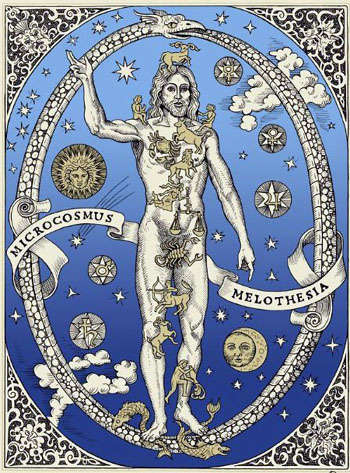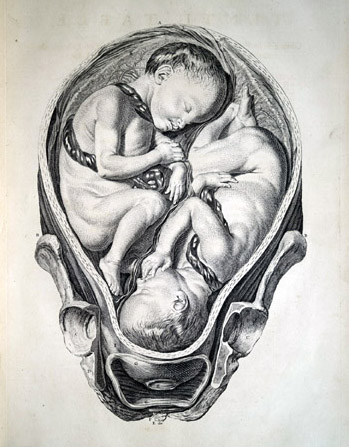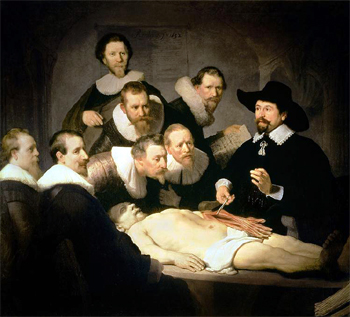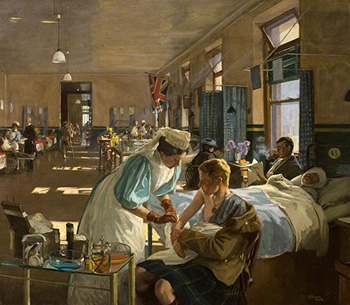By
John Townley,
July 2015
The three top issues
people look to
consult astrologers
about come under the general headings of sex, money, and death. Or to
put it
more gingerly: romance, wealth, and health.
Following those might be
family and
legal matters, spiritual evolution, and perhaps creativity or
intellectual
development.
Using
the general tenets of
traditional astrology, you can
get fairly good results in most of those areas, with the one exception
of
health. Although that’s supposed to be dealt with primarily
by
the affairs of
the sixth house, the issues of good health vs. disease and ultimately
death
don’t seem to reveal themselves well at all to the modern
astrologer. Why, and
what can we do to resolve the conundrum?
Classical
and Renaissance astrologers
used to wax on
endlessly about health, and death, and had no compunction about
diagnosing the
badly-understood diseases of the time and forecasting the length of
life and
moment of death, although with decidedly mixed results. The reason, of
course, is that
the specific, physical causes and realities of disease were largely
unknown, so it was
hard to make reliable predictions about something they didn’t
know
much
about to begin
with.


Traditional
astrology had rulerships for everything, in the birth chart, but most
of it's there already, before
birth.
Or
was it? Certainly, the theory of
microbes as the cause of
most illness didn’t begin to arise until the seventeeth
century,
and until the
1600s and William Harvey
doctors had even the structure of blood circulation itself dead wrong,
not to mention the
electro-chemical connections of the nervous system. Indeed, what we
consider
“modern” medicine didn’t arrive until the
beginning
of the twentieth century –
yet, great strides in overall public health were made in the several
centuries
before that simply by tending to fairly general and obvious principles
such as
diet, cleanliness, and epidemic-spotting and containment by quarantine
(especially exemplified by efforts of the Royal Navy).
Even though the major
causal connections hadn’t quite been established, they were
beginning to
be deduced
from realities on the ground, instead of airily theorized based on the
highly-astrological principles that had prevailed before. And, during
that same
time, as “hard” science rose as the central
approach to
reality, astrology fell
into disrepute, dated and refusing to change, relegated to a few
sincere
practitioners and a great many charlatans.
One
might say that today astrology
is where
medicine itself was just as
the scientific revolution was getting underway – starting to
get
tuned into fuller causality but without the sufficient set of tools
still needed to make
it work
more reliably. You don’t have to have a complete roadmap to
know
where you’re
going in general, but you need one to actually get anywhere specific
you want
to in the end, which science itself is still refining.


Even before
"modern" medicine, an analytical approach to illness by surgeons and
the military advanced knowledge of health.
But
back to astrology and health.
Traditional astrology based on zodiacal and planetary body-part
assignments mixed with outdated theories of degrees
of heat and moisture, the four
temperaments,
the doctrine
of signatures, humours, decumbiture charts, and more
really doesn’t work anymore, if it
ever did. Most modern astrologers are rightly circumspect in that
regard,
partly because of good sense and partly because one can be prosecuted
for
appearing to be practicing medicine without a license. Further,
statistical
attempts at linking diseases with traditional astrological rules tend
to have failed
worse than most astrological studies, leaving them apparently without
much real
basis.
Yet
astrology seems to work fairly
well in so many of the
other important areas of life, why not here? It may be that it has its
effects
like it does any other place, but we’re just not looking in
the
right places,
asking the right questions, applying the immediately obvious instead of
trying
to prop up old rules from dated philosophies that just aren’t
relevant. Two
approaches help remedy this:
Turning
it around, a modern approach
First,
stop looking at the planets as
the indicators of a
huge, mechanized universe that reveals every detail of our momentary
reality.
They are simply one scale of a general set of environmental wave
interactions
that resonate together, of which our scale and local details are a
smaller,
faster part. The old catch phrase, “the planets
don’t
compel, they impel” comes
close to the mark, but not quite, as all the scales ring and echo in
multiple
directions – up and down, back and forth, round and about.
The
planets as
major, entraining drivers give us
something to hang on to, but the true
tale is
in how it all sifts down and settles out locally. To use a disease
metaphor, a plague coming to town doesn’t mean
you’re
going to catch it, but it
does close things in a bit.
Because
of course, you might not catch
it at all, as maybe you’re
immune to it, it doesn't reach your house, or it doesn’t
affect
your subspecies, which brings us to the second approach, the natal chart
itself and its real implications, and
lack of
them. The old way saw the natal chart as some kind of
totally-interlocked key
to all destiny, reflecting everything that could possibly happen on all
fronts.
The new view sees it as simply a local set of initial conditions, the pattern of
the point when
the
various vectors of inertial momentum of the newly-individuated separate
life system cut in, subject to
repeating cycles that create expectations and
habits according to the
initial
pattern being superimposed upon.

The four
temperaments, and
more...

"Astrological"
qualities thought to
be inborn character may be simply genetic, or develop later from
transits to the natal
chart.
That’s
a big difference, as in
this view the natal horoscope is only
tangentially related to what went before, so the major characteristics
of
ongoing health dictated by genetic inheritance or prenatal environment
simply aren’t covered, as they’re
already there before birth. All you can do is manipulate how you deal
with the
reinforcing transit and progression waves as you go along. Like any
set of
waves, some produce more stress and confusion than others, and some you
can
absolutely roll along on and with. Basically, then, the health factors
in a
chart come down to the level of planet-induced
stress
you’re
undergoing, which then may
trigger real effects dormant in your own genetic structure and the
environment
around
you in relation to it. Curiously, the few real scientific studies done
on
seasonal (read: zodiacal) birth-related afflictions suggest
just these
sort of triggers. Indeed, a whole new take on how some health
conditions
arise and develop may be coming from just that new "astrological"
window on
medicine.
What's
really there? What can you actually tell from a chart?
What all this suggests right now is
that you
can certainly deduce
some useful health information from your chart and its transits, just
not in
the highly-specific and archaic way it was once regularly
attempted.
Watch those traditionally harsh and afflicting planets (Mars, Jupiter,
Uranus,
Pluto) as they hit you, especially with hard and choppy mutual aspects,
as you
will be put under extra stress, which can set off inner genetic and
bacterial
land mines already developing inside you from before you had a
horoscope. On
the other hand, good transits do seem to make you feel better, stroking
the
rhythms you’ve developed since birth – although too
much of
a good thing (like
Jupiter) can give you indigestion or even a heart attack or stroke from
resulting elevation of excitement and blood pressure. Further, a
generally chaotic set of ongoing aspects are likely to mean caregivers
and treatment surroundings aren't at their most organized or safe. The
crazier the sky, the higher the risk, and then, of course, it's the
actual detail that gets you (or helps you), which is determine by the
instantaneous ground game in the micromoment, the intractable details
of here and now.
So what health
matters can and can't be inferred from a chart, given these kind of
guidelines? Well, you can't deduce any disorder that's already
pre-birth, genetically
linked -- and that's most of them -- but you could look for the timing
of their manifestation based on environmental
triggers. Planetary
transits are environmental triggers, and they can certainly cause
stress, from full and new Moons (especially on personal points) to the
dread wipe of Pluto over a tender spot, esp. the Ascendant.
Mars
transiting the Ascendant, for instance, is traditionally linked to
damage through
accidents and/or aggression, and why not? Here's a harrowing example,
of many
personal ones...

When it's time to
book passage with Charon, does your horoscope clue you in? Perhaps,
partially...
Further, habits and expectations
accrued from transits to the natal may
serve to aggravate already in-place prenatal genetic predispositions.
An
afflicting Neptune natally and by transit can be just the thing to send
someone with a genetic drug or alcohol addiction potential into a real
problem life
situation, where repeating cycles serve to confuse and exacerbate the
problem. For someone with no such previous predeliction, however, the
same set could
mean nothing more than a hangover to be wisely avoided, or conversely
positive growth and inner understanding, even life-changing visions.
The
sub-generation of Boomers that created modern drug culture, some
benefitting greatly, others perishing from it, are a textbook
example.
Along
that line, how about death
itself, which the ancients were quite glib about predicting?
Anyone who
has done an astrological death watch (try one yourself, track the
planets throught the last days of someone who is dying) will know there
are all kinds of
seeming ups and downs, depending on the personality. I remember
watching Harry Truman doggedly fight dreadful transits right up until
departing
on an easy, gentle one, not an unusual path, actually. I have seen many
similar, each uniquely descriptive in its own way -- but also remember
that
what you're watching is the last strokes of the swimmer before going
under in gradual circumstances. If it's a plane crash, you're not going
to see the same trigger dispatching several hundred different people.
Struggle has its signatures, death does not -- it is simply cessation.
And
of course, a great deal of health
and disease have to do with state of
mind and its effct on the immune system, and
transits and progressions very much affect those, so when the skies are
difficult, especially when they hit you personally, troubles tend
to double up down below, including mental and physical health. And then
don't forget about the immediate surroundings (it's all environmental)
which include friends and family and their
charts. If they're dropping
like flies, you're going to be a lot more sensitive to celestial chop
and swells as well.

Stormy weather
ahead, or the rainbow sign? A lot has
to do with where you think
you're headed, so forecast accordingly...
A final
note on the mind-body
connection: it doesn't
take a real transit to knock you down. Just being convinced of one can
have bad results, a la
voodoo curses and the placebo/nocebo effects. That is why
astrologers
should avoid dire predictions, especially regarding health, and stick
with helpful hints at best and watchful warnings at worst. A good
weathercaster doesn't tell you a twister is going to hit your house,
only that tornadoes are forming in your area. So be a good
weathercaster.
All
in all, it’s really a whole
new vision that opens up from
simply looking differently at the physicality of astrology itself. When
you start asking
the right questions, you begin to get some real answers.
That’s
the likely future
of using astrology in relation to medical matters. So, keep an eye on
your
charts to figure it out, and in the meantime, na zdrowie,
here’s to your
health…!

